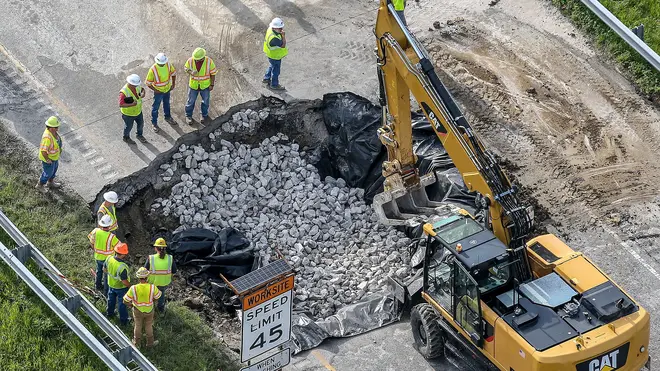
Jim Diamond 1am - 4am
11 June 2019, 17:01 | Updated: 12 June 2019, 08:51

The M25 was closed in both directions on Monday night after two sinkholes opened up in the road. Sinkholes can appear suddenly and without warning - but why do they happen?
Sinkholes are what's left behind when land collapses, leaving a large hole on the surface.
They happen when water collects underneath the surface of a section of land, slowly eroding it by breaking up soil fragments and carrying them further into the earth.
Over time, this underground cavity gets wider and any kind of weight can then cause the surface layer to collapse, leaving behind a hole.
Man made sinkholes happen when urban development affects the structure of underlying rocks.
Buildings, roads, and other types of construction can all weaken the structural integrity of the underlying layer of earth, meaning it's easier for water to collect under the surface.
Water-tight surfaces such as heavily tarmacked roads leads to an increased runoff of water - and this can be exacerbated by heavy rainfall.
Once the underlying ground has been sufficiently eroded, any kind of heavy weight - for instance traffic on roads - can cause the top layer to collapse, forming a sinkhole.
Sinkholes can happen anywhere, but are quite rare in the UK.
Areas that are more affected than most includes Yorkshire and the Peak District, Dorset and Hampshire.
This is because there are high levels of chalk and limestone in these areas, which are more easily eroded by water than harder rocks.